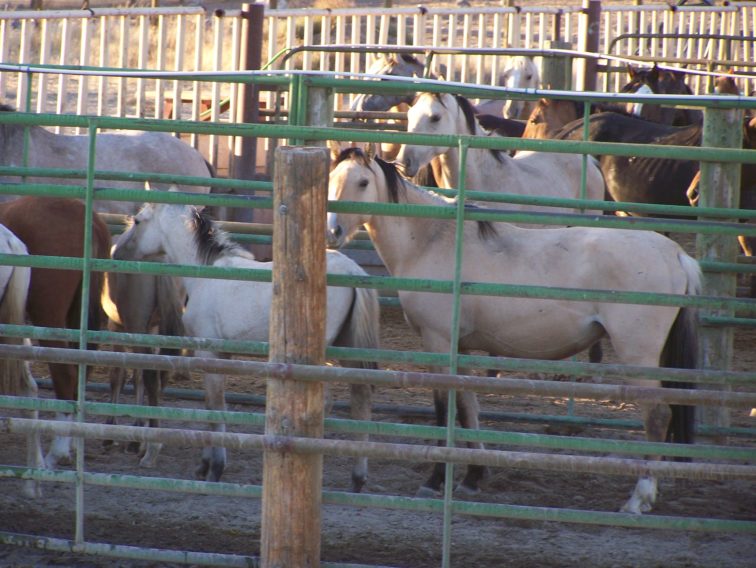
Roundups using helicopter or bait-and-trap methods are well underway across the West as the Bureau of Land Management (BLM) has amped up what it calls “emergency gathers” due to conditions of heat and drought. The BLM plan is to remove close to 50% more wild horses and burros from their home ranges than originally planned for this year. That additional number comes to over 16,500 horses being torn from their homes on taxpayer-funded public lands.
This is a tragic situation due to the long-time Bureau of Land Management’s failure to make use of practical and viable solutions to keep wild horses and burros safe on the range. In fact, these solutions have been available for over 25 years. For almost 50 years, wild horses and burros have suffered due to gross mismanagement by the BLM’s program which has long been dictated by powerful, wealthy special interest groups. These include livestock, “big Ag”, oil & gas, and mining industries that want to use public lands for their own profiteering.
It is also a tragic situation as other solutions exist right now. There are wild horse sanctuaries that make use of safe, non-hormonal fertility control to manage the population growth of the horses they care for. With the decimation of most predators in the wild, fertility control has been shown to be a safe and humane way to slow reproduction and also maintain herd health, including genetic viability.
Sadly, the BLM’s decision-makers have a lengthy history of refusing to establish an infrastructure to create a sustainable, effective fertility control program on the range. Instead, they continue to use cruel and unnecessary roundups every year as an excuse while claiming they are waiting for the development of longer-acting population control vaccines. The BLM is well aware that safe, proven and humane fertility control is readily available now, and their limited use of it could be expanded.
Sensitive habitats out West are known to be vulnerable to drought. There is no excuse for the BLM not to have in place a solid plan of how to keep and protect wild horses and burros on the range during such conditions.
